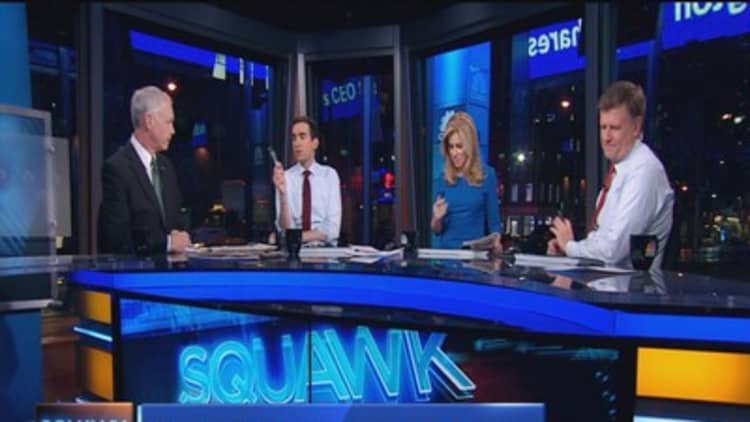


Congress and the White House should address the business tax code before tackling broader tax reform, President Barack Obama's top economic adviser said Tuesday.
Jason Furman told CNBC's "Squawk Box" he sees consensus on several critical issues — cutting the corporate tax rate, broadening the tax base, and reforming the international system so that it collects more revenue and makes American companies more competitive.
Business tax reform came into focus on Monday as Milwaukee-based industrial multinational Johnson Controls announced it would buy Cork, Ireland-based Tyco International, and relocate its headquarters to Ireland. This so-called inversion aims to benefit from that country's lower tax code.
"I think many Republicans would like to use business tax reform as a way to do a broader set of tax cuts," particularly whether to cut taxes for high-income individuals, the chairman of the president's Council of Economic Advisers said.
"If you could set that broader set of tax cuts for high-income individuals aside," Furman continued, "that's a completely different issue, a completely different debate. We could focus on the business system."
Republican Sen. Ron Johnson of Wisconsin said the move by Johnson Controls, which was started in 1885 in Milwaukee, was "just math."
"We need a president to actually understand that we've got to make our tax system competitive," Johnson told "Squawk Box" in a separate interview.
He asserted that in order to secure a compromise on tax reform, Republicans would have to stomach a trillion-dollar tax increase.
In 2013, Congress passed a federal budget that sought to raise $1 trillion in new revenue primarily by closing tax loopholes for the wealthy.
Asked whether a comprehensive deal would help advance business tax reform by forcing both sides to sacrifice, Furman said Obama had indeed put out such a framework four years ago.
"I would describe it as a pretty comprehensive framework that gets at a real economic issue our country has, which is we have the highest tax rate of any advanced economy and we have a ton of ways for companies to avoid paying that tax rate. And those two things are the nub of our problem," he said.




